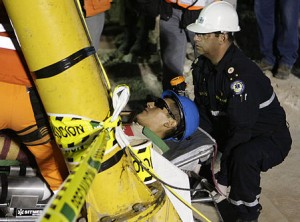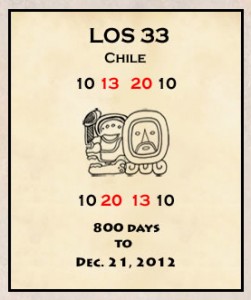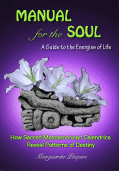Apr 2014
The Chuwen (Monkey) Trecena: April 26-May 8, 2014
Posted by in
Celestial Events, Mesoamerican Mythology, Trecena Horoscopes, World Events, World Festivals, World leaders, Writers
← Back to Horoscope Blog Home
Time to take your “inner monkey” out for a romp! Following another wild ride through the Etz’nab’ trecena, filled with many shocking events reflective of the divisiveness and decisiveness that can come out when the Sun God engages in battle with the Lord of the Underworld (especially with a Grand Cardinal Cross in place), we now welcome the return of the Chuwen trecena, where the sun takes the form of a playful solar Monkey-God, sitting in the centre of the World Tree, initiating a new creation sequence and a weaving together of the threads of time.

Dr. Brazza’s Monkey at the Los Angeles Zoo [Photo credit: Aaron Logan, CC-BY-1.0 (http://creativecommons.org/licenses/by/1.0)], via Wikimedia Commons

First Folio of “Mr. William Shakespeare’s Comedies, Histories & Tragedies”, London 1623
Victoria and Albert Museum, London, National Art Library, cat. no. Dyce 25.F.63 (seemingly made up from different copies). Public Domain. Photo Credit: Andreas Praefcke via Wikimedia Commons
Most assuredly, Creativity and Artistry will be “centre stage” at Stratford-on-Avon and other places in the UK during the opening of this trecena at the celebration of the 450th anniversary of the birth of William Shakespeare. Starting with a 1000-strong grand Birthday Procession on the first day – the Maya Day of the Monkey – this will be a weekend marked by much entertainment and merriment in honour of one of the world’s most famous writers. Indeed, this celebration is “playful” in many ways, as no one really knows for sure exactly when Shakespeare was born and the details of his life and education are sketchy.

Four candidates for the authorship of Shakespeare’s works. Clockwise from top left: Edward de Vere, 17th Earl of Oxford; Francis Bacon; William Stanley, Earl of Derby; and Christopher Marlowe. Photo Credit: Smatprt at en.wikipedia [CC-BY-SA-3.0, via Wikimedia Commons]
As the trecena continues, all the rest of the days reflect aspects of that same creative force, with Two Eb’ being the energy that was in place when the first “stairway” was created that descended from the heavens. In 2012 it was Two Eb’ that was in play when a coronal mass ejection hit Earth at about 1:30 a.m. after a solar tsunami erupted on the sun two days earlier. In 1981 Two Eb’ coincided with the elaborate wedding of Prince Charles and Lady Diana, when millions around the world were swept into the fantasy of what appeared to be a real-life fairy tale, filled with both pageant and promise.

Pope John Paul II in 2004 after he received the Meda of Freedom [Photo Credit: Eric Draper (whitehouse.gov), Public domain, via Wikimedia Commons]
Three B’en through to Five Men (coinciding at this time with April 28th and 29th) were seen as the days in that mythological sequence when many of the other things of the heavens, the seas, and the earth were made, with the “first light” coming into being on Six Kib’. Intriguingly, this “first light” idea was vividly illustrated in October of 2010 during the rescue of the Chilean miners when a drill first broke through to the trapped miners in their underground chamber after they had been imprisoned by the earth for 66 days, signalling that rescue was very close at hand. This time this energy arrives two days after the Annular Solar eclipse of April 29th.

Annular Solar Eclipse May 10, 2013 (One Ajaw), Northern Territory Australia [Photo Credit: Mrpulley (Own work), CC-BY-SA-3.0 (http://creativecommons.org/licenses/by-sa/3.0)], via Wikimedia Commons
Within this trecena one of the most pivotal days is Ten Ajaw, a “Burner” day that often provides a strong energy boost. Arriving on May 5th this time through, in conjunction with Mexico’s Cinco de Mayo, this force can translate as “foundational enlightenment”.
![Cinco de Mayo dancers in Washington DC [Photo credit: dbking (originally posted to Flickr as IMG_5269), CC-BY-2.0 (http://creativecommons.org/licenses/by/2.0)], via Wikimedia Commons](http://whitepuppress.ca/wp-content/uploads/2014/04/Cinco-de-Mayo-dancers-.jpg)
Cinco de Mayo dancers in Washington DC [Photo credit: dbking (originally posted to Flickr as IMG_5269), CC-BY-2.0 (http://creativecommons.org/licenses/by/2.0)], via Wikimedia Commons

The rescue of Los 33 from a Chilean mine on Oct. 13, 2010 (10 Ajaw) [Photo credit: Hugo Infante/Government of Chile, CC-BY-2.0 (http://creativecommons.org/licenses/by/2.0)], via Wikimedia Commons
Gripping in its intensity, this was a day aligned with many extraordinary “coincidences”, as described in my 2010 article about this event. Given the number of “coincidental” numerical connections between this rescue event and Pope John Paul II (including the significance of the number eight), it is intriguing to see that this pope’s canonization ceremony is taking place on 2 Eb’, the energy that was in place as the miners were preparing for their imminent rescue on 10 Ajaw (eight days later).
In deep mythology the day known as Twelve Ik’ (which coincides with May 7th at this time) was seen as the day in which the breath of life was created. This is a “collecting together” type of force associated with Wind, Breath, and Spirit, which can be strongly aligned with communication. In 1893 the first major display of AC lighting took place at the World Exposition in Chicago under this influence.
May 8th, the final day of this trecena, on will be Thirteen Ak’bal (“transformational temple or house”). In the Maya creation legend this was the energy in the Maya Calendar that brought forth the creation of the first human. This can be a very high-powered force, a force that has brought severe weather conditions on its appearance over the past few years. It is also the energy that was in place when the Emancipation Proclamation was signed in the U.S. in 1862. In addition, this is the Maya birth energy of Vasili Arkhipov, the Soviet naval officer who is known as the man who saved the world from WIII when he prevented the launch of a nuclear torpedo from a Soviet submarine during the Cuban missile crisis in 1962, thereby averting the start of a nuclear war.
Overall, this Chuwen trecena can challenge individuals to think differently, to try out new ideas – even unorthodox ones. It’s a time when even “miracles” are possible as the “Monkey-God” plays with time and opens the door to new possibilities. During this time frame these are the energies that will come into play:
1 Chuwen (April 26th) – Day of the Monkey, an “initiating” day associated with high creativity and the beginning of an important new time sequence
2 Eb’ (April 27th) – “dynamic animating vitality”, coinciding with (1) the canonization ceremony at the Vatican where two living popes will be honouring two deceased popes (both named John), and (2) the SunRun in Vancouver
3 B’en (April 28th) – the “activation” of personal authority
4 Ix (April 29th) – a “defining” energy associated with the jaguar and the mysteries of the earth, this time in conjunction with the New Moon, an Annular Solar eclipse, International Dance Day, and the Calendar Round return of the 4 Ix 7 Wo energy that was in place on the only day in which Wilbur and Orville Wright flew together in their pioneering airplane (in 1910)
5 Men (April 30th) – a “blessing” type of energy associated with the Eagle’s “higher vision”

International Workers’ Day poster in Belfast on May Day 2010 [Photo Credit: Ardfern (Own work) [CC-BY-SA-3.0] via Wikimedia Commons
7 Kab’an (May 2nd) – “self-generating movement”, an energy that, in the past, has generated a lot of Earth-oriented action
8 Etz’nab (May 3rd) – the “resurrection of flint” – a knife-edged energy that can often be quite divisive or decisive, as in the Tiananmen Square demonstrations in China in 1989, and in the “Day of Rage in Egypt” last summer at the same time as the sinking of a Philippines ferry carrying 841 people
9 Kawak (May 4th) – “outward projecting storm”; a possibility for significant weather events or for situations requiring great compassion (as in the Tiananmen Square massacre in 1989 when the Chinese army opened fire on demonstrators)
10 Ajaw (May 5th) – “foundational enlightenment” – an important Burner Day aligned with “taking the fire” in conjunction with Ajaw’s “full sun” energy (birth energy of Pope John Paul 11); this time in conjunction with Cinco de Mayo
11 Imix (May 6th) – “inspirational new birth”; peak of the Eta Aquarids meteor shower
12 Ik’ (May 7th) – a “collecting together” type of force associated with wind, breath, and spirit; an excellent type of energy for conferencing or “putting heads together” to develop or share ideas
13 Ak’bal (May 8th) – the last day of this “creation sequence” trecena, this is a transformational energy aligned with deep esoteric mysteries; associated with the “temple or house”, this is a powerful earth-oriented energy that sometimes can have profound personal implications as reflected in the Emancipation Proclamation noted above; a force that frequently brings forth severe weather conditions
**********************************
[Please note that the brief descriptions of the days provided above are only “thumbnail sketches”. Much greater detail can be found in Manual for the Soul: A Guide to the Energies of Life.]


 An in-depth analysis of the energies encoded in the Sacred Maya Calendar and the impact of those energies on daily life.
An in-depth analysis of the energies encoded in the Sacred Maya Calendar and the impact of those energies on daily life. 